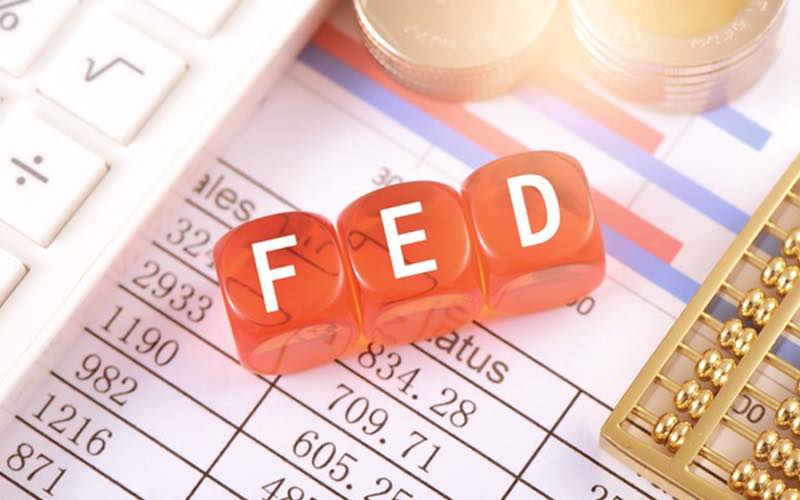The feud between the Central American giant and the US president escalates. Trump imposes a 50% tariff on Brazil, and the prices of coffee and orange juice may soar
2025-07-10 09:02:58

Trump's tariff 'iron fist': war of words with Lula escalates
The trigger for this tariff crisis can be traced back to Trump's public confrontation with Brazilian President Lula. Just this Monday, Lula ruthlessly criticized Trump at the BRICS summit in Rio de Janeiro, calling him an "emperor" and saying that "the world has changed and we don't want emperors." This statement was a direct response to Trump's previous threat to impose an additional 10% tariff on BRICS countries. Trump quickly fought back and announced that he would impose a 50% tariff on Brazilian goods, far exceeding the 10% tariff announced in April. The new tariffs will take effect on August 1 and apply to all industries, leaving no buffer room.
In his open letter, Trump linked the tariffs to Brazil's domestic politics, claiming that the move was a response to Brazil's "insidious attack on free elections and fundamental freedom of expression in the Americas." He specifically mentioned the trial of former Brazilian President Bolsonaro for allegedly planning a coup in 2023, accusing the Brazilian government of investigating Bolsonaro as a "witch hunt." Trump's support is consistent with his stance on other global right-wing leaders, such as French far-right leader Marine Le Pen and Israeli Prime Minister Benjamin Netanyahu, whose legal proceedings he collectively called "political persecution."
Brazil's economy under pressure: Real plummets, corporate stock prices plummet
Trump's tariff decision had an immediate impact on the Brazilian economy. After the tariffs were announced, the Brazilian real fell rapidly against the US dollar, falling by more than 2%, hitting a recent low. The Brazilian stock market was not immune, and the share prices of aviation giant Embraer and energy giant Petrobras in the United States fell sharply, and investors' confidence in the Brazilian economy was clearly shaken.
As the second largest trading partner of the United States after China, Brazil's exports to the United States cover a number of key areas, including coffee, orange juice, sugar, beef and ethanol. The 50% tariff will undoubtedly significantly increase the cost of Brazilian goods in the US market, thereby weakening their competitiveness. Market analysts warn that this will not only deal a heavy blow to Brazilian exporters, but may also trigger a chain reaction of increased inflation and rising unemployment in Brazil.
Lula’s emergency response: How did the Brazilian government break the impasse?
Faced with the sudden tariff shock, Brazilian President Lula took quick action. On the evening of July 9, Lula convened an emergency meeting with key officials such as the vice president and the finance minister to discuss response strategies. Although the Brazilian government has not yet made an official comment on Trump's tariff decision, this emergency meeting shows that the Brazilian top leaders attach great importance to the situation. Lula once said at the BRICS summit that "we are a sovereign country. If he (Trump) thinks he can impose tariffs, then other countries also have the right to impose tariffs." This remark suggests that Brazil may take reciprocal retaliatory measures, such as imposing tariffs on US goods or seeking support from other trading partners.
At the same time, Brazilian public opinion reacted strongly to Trump's decision. Some economists called on the government to ease tensions through diplomatic means, while others advocated that Brazil should speed up cooperation with BRICS countries and other emerging markets to reduce its dependence on the US market.
US consumers are hurt: coffee and orange juice prices could soar
Trump's tariff decision not only threatens the Brazilian economy, but may also have a direct impact on the wallets of American consumers. The United States is the world's largest coffee consumer, and about one-third of its coffee imports come from Brazil, while Brazil is the world's largest coffee grower. According to industry data, Brazil exports nearly 8 million bags of coffee to the United States each year, accounting for a core share of the US coffee market. In addition, Brazil is also the main supplier of the US orange juice market. More than half of the US orange juice comes from Brazil, accounting for 80% of the global orange juice trade.
Once the 50% tariff takes effect, the import costs of goods such as coffee and orange juice will rise significantly, and retail prices will inevitably rise. Not only that, Brazil's exports of sugar, beef and ethanol to the United States will also be affected, further pushing up US food and energy prices. Analysts pointed out that this tariff policy may exacerbate inflationary pressure in the United States, especially against the backdrop of already high food prices.
The shock of global trade pattern: the game between BRICS countries and the United States intensifies
Trump's tariff decision is not only a bilateral dispute, but may also have a profound impact on the global trade pattern. As representatives of emerging economies, the BRICS countries have been promoting de-dollarization and multilateral trade cooperation in recent years. Trump has previously accused the BRICS group of being "anti-American" and threatened to impose tariffs on all BRICS countries. Lula's tough response and Brazil's potential retaliatory measures may further exacerbate tensions between the BRICS and the United States.
In addition, Trump's public support for Bolsonaro has added an ideological color to the tariff war. His stance may further stimulate political divisions in Latin America, while providing other countries with an opportunity to re-examine their trade relations with the United States. As an agricultural and industrial powerhouse in South America, Brazil's economic turmoil may affect the entire Latin American region and even affect the stability of the global supply chain.
Conclusion: The political and economic game behind the tariff war
Trump's decision to impose a 50% tariff on Brazil is not only a continuation of the political conflict between the leaders of the two countries, but also a microcosm of the changes in the global trade pattern. The collision between Lula's tough attitude and Trump's tariff iron fist not only poses severe challenges to the Brazilian economy, but may also push up the cost of living for American consumers. In this game where there is no winner, the plunge of the Brazilian real, the sharp drop in corporate stock prices, and the emergency response of the Lula government all indicate that this crisis is far from over. In the future, will Brazil take reciprocal retaliation? Where will the relationship between the BRICS countries and the United States go? All of this deserves our close attention.
Analysis of the impact on gold prices:
The tariff decision has heightened trade tensions between the United States and Brazil and could further worsen the economic standoff between the BRICS and the United States. Increased global trade uncertainty typically drives up demand for safe-haven assets, and gold, as a traditional safe-haven asset, could see its price rise as investors seek to avoid risk. In particular, the plunge in the Brazilian real and the fall in Brazilian stocks could prompt investors to turn to gold as a hedge against emerging market instability. Impact of the U.S. Dollar The tariffs have caused the Brazilian real to depreciate by more than 2% against the U.S. dollar, which could support a stronger dollar in the short term. Gold prices are usually negatively correlated with the U.S. dollar, and a stronger dollar could put some downward pressure on gold prices. However, if an escalation in the trade war sparks global economic concerns, risk aversion could outweigh the impact of a stronger dollar and push up gold prices.
At 09:01 Beijing time, spot gold was trading at $3,316.94 per ounce.
- Risk Warning and Disclaimer
- The market involves risk, and trading may not be suitable for all investors. This article is for reference only and does not constitute personal investment advice, nor does it take into account certain users’ specific investment objectives, financial situation, or other needs. Any investment decisions made based on this information are at your own risk.










